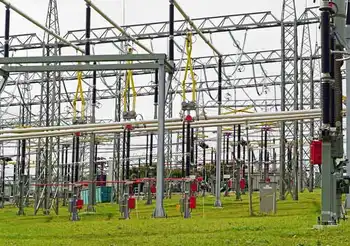Toshiba, IHI launch steam turbine company
YOKOHAMA, JAPAN - Electrical and electronic equipment manufacturer Toshiba Corporation and heavymachinery manufacturer IHI Corporation recently signed a memorandum of understanding, under which the two companies will form a joint venture to manufacture steam turbine parts for upcoming nuclear power plants.
The venture will target both the domestic and overseas markets. The formation of the venture signifies the growing demand for new nuclear power plants worldwide and the ensuing requirement for maintenance services.
The asyet unnamed joint venture will be based in Yokohama, within IHIs representative office. The products of the venture will include casings and nozzles, both of which are essential components of steam turbines used in both boilingwater reactors BWR and pressurizedwater reactors PWR. The venture also will offer maintenance services on its installed equipment. The planned initial capital investment on the venture is about $3.2 million. The venture is expected to be launched in October 2010, and IHI is likely to hold a majority stake in it. At this point, the two companies have made it clear that they are not discussing joint production of any other component. The two companies had begun talks about this possible partnership in February 2008.
The partnership will benefit both companies, and it will enable Toshiba to strengthen its supply chain in the nuclear power plant business and improve its steam turbine manufacturing capacity. It also will enable IHI, which manufactures containment vessels and nuclear reactor pressure vessels, to add the manufacture of turbine parts to its portfolio. The partnership will help reduce the costs of production and enhance production capacity as competition heats up from manufacturers in Russia and South Korea, among others. The venture hopes to draw customers away from business rivals such as Areva S.A. and Hitachi Limited.
The two companies have an established relationship in the construction and maintenance of BWR plants ,and both are trying to grow their PWR business through the global PWR power plant leader, Westinghouse Electric Company LLC. While Toshiba has been a majority owner of Westinghouse since 2006, IHI is a 3 shareholder in the company. In 2008, Toshiba signed cooperation agreements in the PWR business with IHI and holding company Doosan Corporation. This was followed by IHI and Doosan being selected to supply equipment and materials for the AP1000 reactor construction projects of Westinghouse.
The primary reason driving the demand for new nuclear power plants is the growing realization that nuclear power is one of the most promising ways to ensure longterm energy security. Toshiba has been increasing its focus on the nuclear business as more countries are considering nuclear power as a clean alternative to conventional power sources. Toshiba and Westinghouse expect to receive at least 39 supply orders for worldwide nuclear power plants through 2015.
Related News

Lawmakers push bill to connect Texas grid to rest of the nation
DALLAS - In the aftermath of the devastating 2021 Texas blackouts, which exposed the vulnerabilities of the state's energy infrastructure, a significant legislative effort is underway to transform Texas from an energy island into a connected component of the broader U.S. power grid. Spearheaded by U.S. Representative Greg Casar, D-Austin, the proposed Connect the Grid Act seeks to remedy the isolation of the Electric Reliability Council of Texas (ERCOT) from neighboring power grids, a condition that significantly contributed to the crisis during Winter Storm Uri.
The blackouts, which left millions without power and resulted in significant loss of life and economic…




